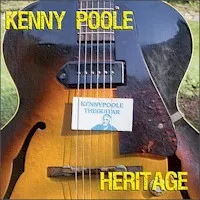Time: 68:40
Size: 157.2 MB
Styles: Latin Jazz
Year: 1992
Art: Front
[4:18] 1. Horace Parlan - Congalegre
[3:53] 2. Charlie Rouse - Back To The Tropics
[7:20] 3. Big John Patton - Latona
[3:28] 4. Duke Pearson - Sandalia Dela
[3:09] 5. Ike Quebec - Loie
[3:31] 6. Cannonball Adderley - Sambop
[5:02] 7. Kenny Dorham - Afrodisia
[5:47] 8. Grant Green - Mambo Inn
[4:56] 9. Horace Silver - The Cape Verdean Blues
[6:17] 10. Andrew Hill - Mira
[8:09] 11. Hank Mobley - Recado Bossa Nova
[5:30] 12. Lou Donaldson - South Of The Border
[7:14] 13. Donald Byrd - Ghana
This compilation should be titled Blue Latin because it's more of a sampler of various Latin jazz styles than just a bossa nova-jazz mix. In an age of overzealous marketing and grab-bag reissues, though, the oversight is understandable. Thankfully, the misguided approach doesn't dim the quality of this very enjoyable Blue Note release. The six actual bossa nova tracks in the collection -- out of 14 -- range from effervescent, hard bop treatments by Hank Mobley ("Recado Bossa Nova") and Cannonball Adderly ("Sambop") to languid ballad renditions by Ike Quebec ("Loie") and Eliane Elias ("Waters of March/Agua de Beber"). The most authentic and best of the bunch is Duke Pearson's "Sandalia Dela," which spotlights Brazilian stars Airto Moreira and Flora Purim. Another standout is John Patton's B-3 organ bossa "Latona," which features inspired solos by guitarist Grant Green and vibraphonist Bobby Hutcherson. Throughout this collection, in fact, excellent solos and support abound by the likes of Lee Morgan, Joe Henderson, Willie Bobo, Dom Um Romao, Nana Vasconcelos, Horace Silver, and J.J. Johnson, among others. The remaining numbers on Blue Bossa showcase everything from mambos to calypso. The highlights here include Horace Parlan's piano trio number "Congalegre," Kenny Dorham's superbly arranged, large ensemble original "Afrodesia," and Donald Byrd's cool cooker "Ghana." If you fancy more authentic Brazilian jazz, bossa nova, or otherwise, then check out Blue Note's excellent Blue Brazil series, which features Brazilian musicians exclusively. If you are a jazz fan with a yen for Stan Getz and the whole stateside bossa nova craze of the '60s, then Blue Bossa is a great buy. ~Stephen Cook
Blue Bossa










